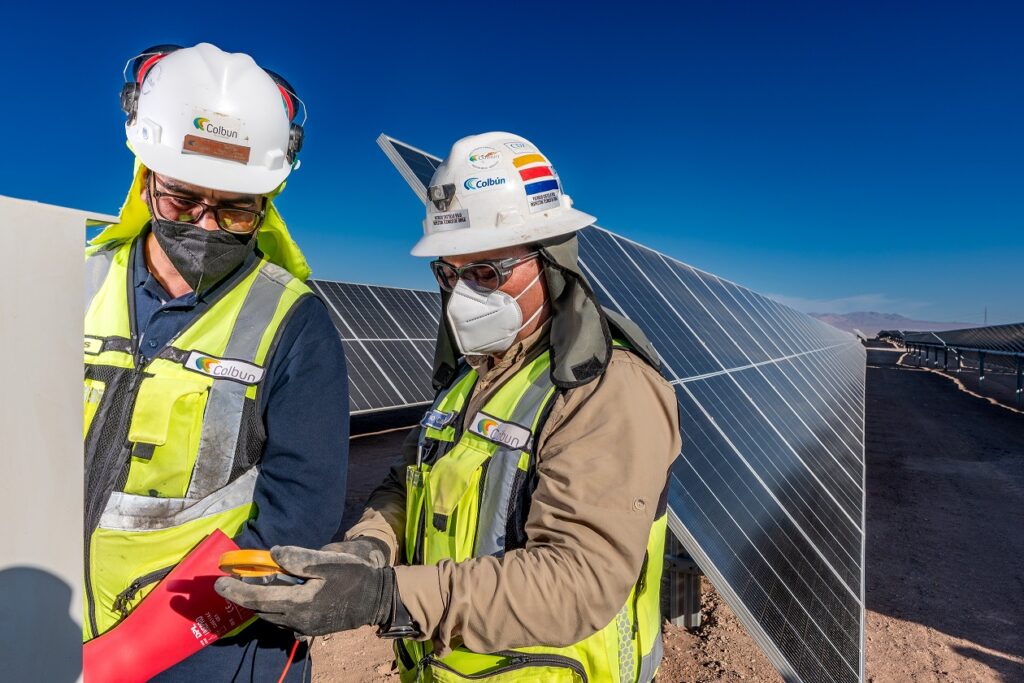
Chilean utility Colbún has submitted plans for a solar-plus-storage project with a 1.2GWh battery energy storage system (BESS).
The company last week (8 August) submitted an Environmental Impact Assessment (EIA) to the Environmental Assessment Service of the northern region of Arica and Parinacota for the project, which it plans to build in the commune of Camarones.
Enjoy 12 months of exclusive analysis
- Regular insight and analysis of the industry’s biggest developments
- In-depth interviews with the industry’s leading figures
- Annual digital subscription to the PV Tech Power journal
- Discounts on Solar Media’s portfolio of events, in-person and virtual
The solar PV portion of the project, which is being called Celda Solar (Solar Cell), will comprise 700,000 bifacial modules totalling 421.9MW of power. The attached energy storage will be a 240MW, five-hour BESS meaning a total capacity of 1,200MWh, making it one of the largest single projects being planned in the country.
The 960-hectare site is part of a public land reserve owned by the state which has been earmarked for energy projects. The power from the project will be injected into the national grid through the Roncacho substation.
Although it is one of the leading PV markets in South America, second only to Brazil, Chile today has only 64MW of utility-scale BESS connected. That is according to the Asociación Chilena de Energía Renovables y Almacenamiento (ACERA), the country’s renewables and storage trade association.
This is set to grow substantially in the coming years as new projects pair batteries to PV parks, which can help reduce curtailment by storing excess power and discharging it during higher-demand periods. As such, most big projects being announced have a duration of between four and five hours.
Examples include a recent order by Independent Power Producer (IPP) Innergex Renewable Energy to Mitsubishi Power Americas for 85MW/425MWh of co-located BESS projects. In late 2020, AES and its energy storage subsidiary Fluence, which it IPOed last year, started construction on a 112MW/560MWh project integrating several different PV parks. And Colbún recently ordered an 8MW/32MWh BESS from System integrator Wärtsilä for a separate project.
The utility has 248MW of operational PV and 1,023MW which is EIA-approved, as well as an 812MW wind farm under construction and a 360MW one for which it is about to submit an EIA. It plans to have a total renewable energy capacity of 4,000MW online by the end of the decade.






